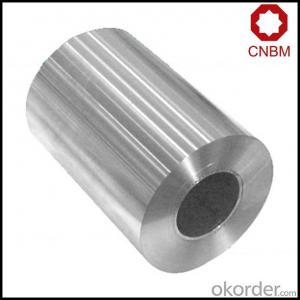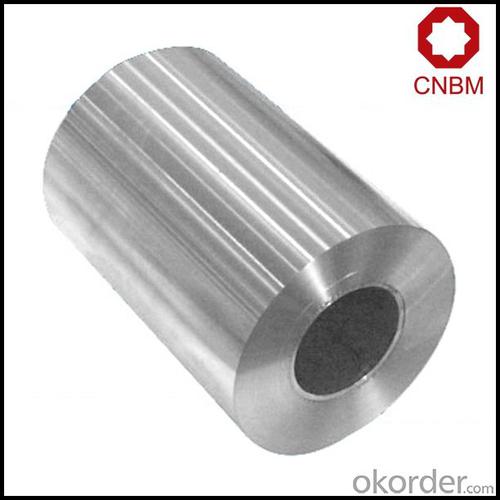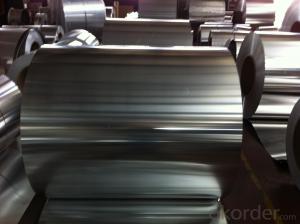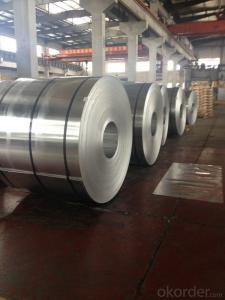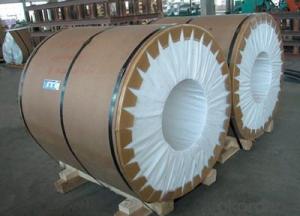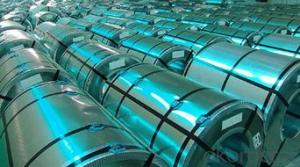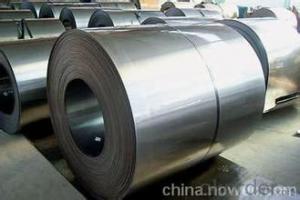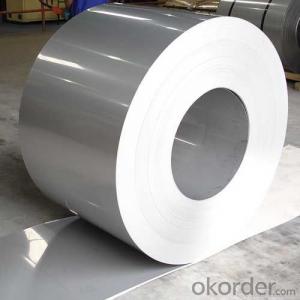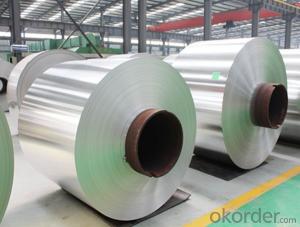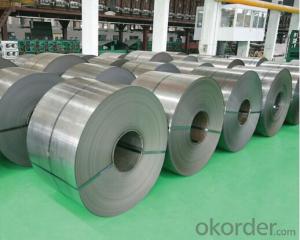Cold Rolling Aluminum Coils - Aluminium Coil/Aluminium Strip China Supplier with Good Price 1xxx 3xxx 5xxx
- Loading Port:
- Shanghai
- Payment Terms:
- TT OR LC
- Min Order Qty:
- 5 m.t.
- Supply Capability:
- 10000 m.t./month
OKorder Service Pledge
OKorder Financial Service
You Might Also Like
Specification
1. Specification of Aluminium Coil/Aluminium Strip China Supplier with Good Price 1XXX 3XXX 5XXX
1) Alloy | 1050, 1060,1100, 3003 3004 3105 3A21 5005 5052 etc |
2) Temper | O/H12/H14/H1/H18/H32/H34/H36/H38//H111/H112/H116/H321/T6/T651/T3/T351 etc |
3) Thickness | 0.1mm to 6mm |
4) Width | 20mm to 3300mm |
5) Coil weight | 100kgs to 6 tons depends on actual requirement |
6) Core material | Aluminum or paper |
7) Coil Inner diameter | 75mm, 150mm, 200mm, 300mm, 405mm, 505mm or as required |
8) Protective film can be added
2. Application of Aluminium Coil/Aluminium Strip China Supplier with Good Price 1XXX 3XXX 5XXX
(1).Interior: wall cladding, ceilings, bathrooms, kitchens and balconies, shutters, doors...
(2).Exterior: wall cladding, facades, roofing, canopies, tunnels,column covers , renovations...
(3).Advertisement: display platforms, signboards, fascia, shop fronts...
3. Feature of Aluminium Coil/Aluminium Strip China Supplier with Good Price 1XXX 3XXX 5XXX
*Such coil is specially designed to replace aluminum ingot, due to the high export tax of aluminum ingot, the coil has better price than ingot.
*This type of coil can fit customer's remelting furnace just like ingot, no need to make any change to the production line that was previously used for ingot. The standard coil size and weight is very suitable for the feed gate of furnace.
*This type of coil causes less material wastage than ingot when remelted.
*Our coil is made directly from ore, no need to go though the ingot making process, quality is much better than other suppliers who use ingot scrap to make coil.
Be free from Oil Stain, Dent, Inclusion, Scratches, Stain, Oxide Dicoloration, Breaks, Corrosion, Roll Marks, Dirt Streaks and other defect which will interfere with use
4. Certificate:
SGS and ROHS(if client request, paid by client), MTC(plant provided), Certificate of Origin(FORM A, FORM E, CO), Bureau Veritas and SGS (if client request, paid by client), CIQS certificate
5. Image of Aluminium Coil/Aluminium Strip China Supplier with Good Price 1XXX 3XXX 5XXX
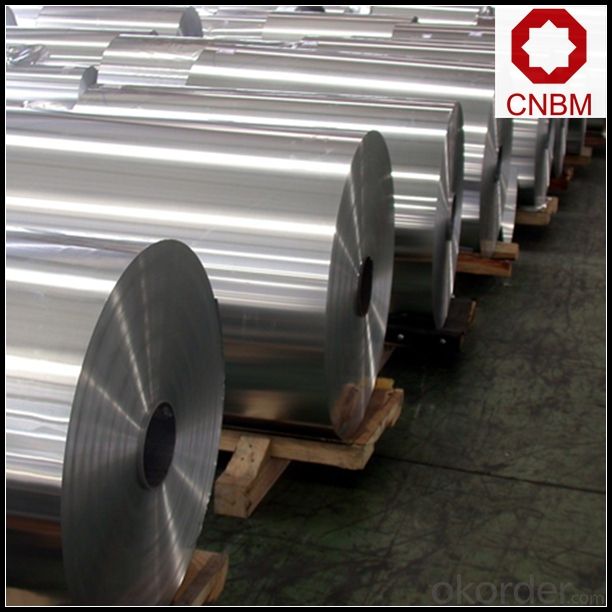
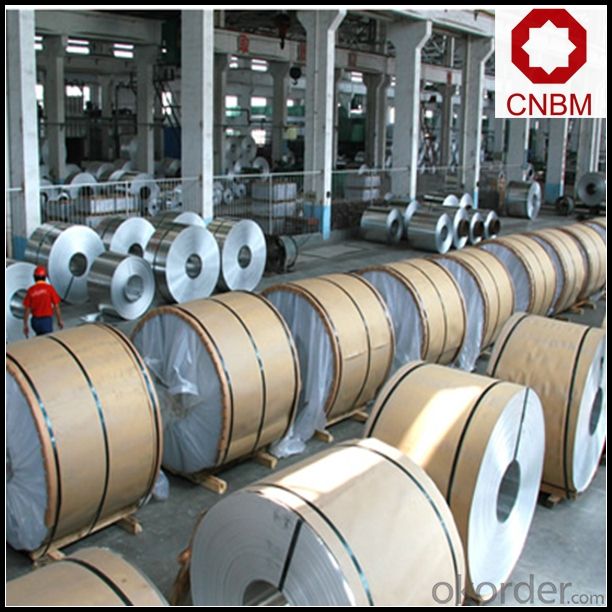
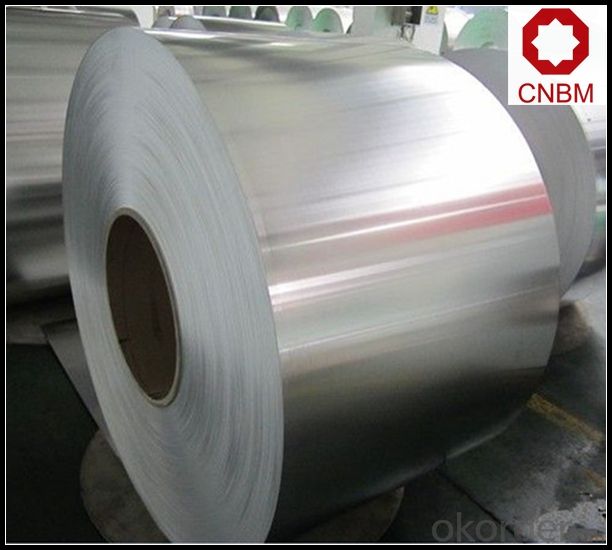
6. Package and shipping of Aluminium Coil/Aluminium Strip China Supplier with Good Price 1XXX 3XXX 5XXX
eye to wall
eye to the wall
with wood pallet (wooded case also available)
7. FAQ
1) What is the delivery time?
Dpends on actual order, around 20 to 35 days
2)What is the QC system:
We have QC staff of 20 persons and advanced equipment, each production is with MTC traced from Aluminum ingot lot.
3) What market do you mainly sell to?
Australia, America, Asia, Middle East, Western Europe, Africa etc
- Q: What are the potential hazards associated with handling aluminum coils?
- Handling aluminum coils comes with several potential hazards. One major concern is the risk of physical injury. Improper lifting or movement of the heavy coils can lead to strain or sprain injuries. Workers must handle them correctly to avoid such incidents. Furthermore, if the coils are not stacked or stored securely, they may fall and cause harm to workers. Another hazard associated with aluminum coils is the presence of sharp edges. Careless handling can result in cuts or lacerations from the coils' sharp edges or burrs. To minimize the risk of injury, workers should wear appropriate gloves and protective clothing. Another potential danger is the risk of fire or explosion. Aluminum is highly flammable when it comes into contact with certain substances, such as acids or alkalis. Therefore, it is crucial to store aluminum coils in a cool and dry place, away from any flammable materials. Moreover, aluminum coils pose a respiratory hazard. Manipulating or cutting them can release dust or particles into the air, which can cause respiratory irritation or even lung damage. Therefore, workers should wear appropriate respiratory protection when handling aluminum coils. Lastly, aluminum coils can also present a chemical hazard. Some aluminum coils may be coated or treated with chemicals that can be toxic or irritating to the skin and eyes. It is essential for workers to be aware of the specific hazards associated with the type of aluminum coil they are working with and take necessary precautions, such as wearing protective clothing and eye protection. Overall, workers must be aware of the potential hazards linked to aluminum coil handling and take appropriate safety measures to minimize risks. Regular training, proper lifting techniques, the use of protective equipment, and safe storage practices are all vital steps in ensuring the safety of workers who handle aluminum coils.
- Q: is there an anti-perspirant without aluminum in it for men? i saw there was a female question for it but i need a male one xD. something that you can find at your local wal-mart or such.
- Tom's organic care of significant is spectacular. i'm allergic to the aluminum in different manufacturers and after digging around i found this kind and have not had issues considering the fact that. i will even placed it on after shaving. dry off, slap a number of those products on and no inflammation what so ever. they have distinctive varieties so which you would be able to %. and choose what you % to apply. it somewhat is somewhat costly, yet i think of it somewhat is well worth it.
- Q: How does aluminum ingot be processed to aluminum coil (aluminum sheet)?
- This depends on what aluminum ingot is. Small ingot needs to be casted into big one by putting into the melting furnace, and then be rolled to aluminum coil through rolling mill.
- Q: Can aluminum coils be used in telecommunications infrastructure?
- Telecommunications infrastructure can employ aluminum coils as they possess several advantages. Firstly, aluminum, being a lightweight and durable material, finds extensive use in various industries, including telecommunications. Its cost-effectiveness, when compared to metals like copper, makes it a preferred choice for many companies in this sector. Moreover, the lighter weight of aluminum coils facilitates easier handling and installation, resulting in reduced labor and transportation costs. Additionally, aluminum's excellent electrical conductivity makes it suitable for transmitting data signals in telecommunications networks. By effectively carrying electrical current, aluminum coils ensure efficient data transmission without compromising quality. Consequently, reliable and high-speed communication over long distances becomes possible. Another advantage of incorporating aluminum coils in telecommunications infrastructure lies in their resistance to corrosion. When exposed to air, aluminum naturally forms a protective oxide layer, preventing rusting and corrosion. This resistance enhances the longevity and durability of the infrastructure, thereby reducing maintenance and replacement expenses over time. Nevertheless, it is crucial to acknowledge that aluminum possesses lower tensile strength than copper. Therefore, the infrastructure's structural integrity must be adequately considered and engineered when employing aluminum coils. Additionally, specific connectors and compatible hardware may be necessary. In conclusion, the use of aluminum coils in telecommunications infrastructure is highly effective due to their cost-effectiveness, lightweight nature, electrical conductivity, and corrosion resistance. Proper planning and design are imperative to ensure the successful implementation of aluminum coils in telecommunications networks.
- Q: Can aluminum coils be used in the production of heat exchangers?
- Yes, aluminum coils can be used in the production of heat exchangers. Aluminum is a commonly used material in heat exchangers due to its excellent thermal conductivity, lightweight nature, and corrosion resistance. The use of aluminum coils allows for efficient heat transfer and helps in optimizing the overall performance of the heat exchanger.
- Q: What specific conditions or considerations need to be taken into account when utilizing aluminum coils in high-temperature settings?
- <p>When using aluminum coils in high-temperature environments, it's crucial to consider the material's melting point, which is around 660掳C (1220掳F). Ensure that the operating temperature does not exceed this threshold to avoid deformation or failure. Additionally, aluminum's strength and conductivity can be affected by high temperatures, so it's important to account for potential changes in performance. Protective coatings or treatments may be necessary to prevent oxidation and maintain the coil's integrity. Always consult material specifications and consult with material science experts to determine the suitability of aluminum coils for specific high-temperature applications.</p>
- Q: Can aluminum coils be used in food processing applications?
- Food processing applications can utilize aluminum coils, as they offer a range of advantages. Aluminum is a widely used and highly adaptable material in the food industry due to its various benefits. Aluminum coils are lightweight, durable, and possess excellent thermal conductivity, which makes them suitable for applications requiring efficient and uniform heat transfer. When it comes to food processing, aluminum coils are commonly employed in equipment such as heat exchangers, evaporators, and refrigeration units. These coils help to cool, heat, or maintain the temperature of different food products during their processing, storage, or transportation. The exceptional thermal conductivity of aluminum ensures that heat is evenly dispersed, thereby aiding in the preservation of food quality and flavor. Furthermore, aluminum is a non-toxic and non-reactive metal, meaning it has no adverse effects on the taste or composition of the processed food. It is also naturally resistant to corrosion, ensuring that the coils do not contaminate the food and can be easily cleaned and maintained. In addition, aluminum is an environmentally friendly and recyclable material, aligning with the increasing demand for sustainable practices in the food industry. Its lightweight nature also contributes to energy efficiency and reduced transportation expenses. In conclusion, aluminum coils are a reliable, efficient, and safe choice for food processing applications. They meet the strict requirements of the industry while ensuring the quality and safety of the processed food.
- Q: What benefits does anodized aluminum offer when compared to regular aluminum coils?
- <p>Anodized aluminum coils offer several advantages over standard ones. They have enhanced corrosion resistance due to the protective oxide layer formed during the anodizing process. This layer also improves wear resistance and increases the coil's durability. Anodized coils can be easily colored, providing a wide range of aesthetic options without affecting the material's performance. Additionally, the anodized surface is more resistant to scratches and can maintain a polished appearance longer. Overall, anodized aluminum coils are more robust, visually appealing, and longer-lasting compared to standard aluminum coils.</p>
- Q: Explain the distinctions among various types of aluminum coils, including their properties and applications.
- <p>Aluminum coils are differentiated based on their alloy composition, thickness, temper, and surface finish. Common types include 1000 series coils, which are pure aluminum with high ductility but low strength; 3000 series, known for their formability and used in cookware; 5000 series, which are non-heat-treatable and corrosion-resistant; and 6000 series, offering a balance of strength and corrosion resistance. Thickness varies from thin gauges for flexible applications to thick gauges for structural use. Tempers range from soft (O temper) to fully hard (H temper), affecting the coil's hardness and strength. Surface finishes can be plain, coated, or embossed, impacting aesthetics and performance. Each type is chosen based on specific industry requirements like construction, automotive, or packaging.</p>
- Q: Are aluminum coils suitable for decorative purposes?
- <p>Yes, aluminum coils can be used for decoration. They are lightweight, durable, and corrosion-resistant, making them ideal for various decorative applications. Aluminum coils can be shaped and colored to suit different design needs, often used in architectural features, interior design elements, and even in art installations. Their versatility and aesthetic appeal make them a popular choice for both commercial and residential decoration.</p>
Send your message to us
Cold Rolling Aluminum Coils - Aluminium Coil/Aluminium Strip China Supplier with Good Price 1xxx 3xxx 5xxx
- Loading Port:
- Shanghai
- Payment Terms:
- TT OR LC
- Min Order Qty:
- 5 m.t.
- Supply Capability:
- 10000 m.t./month
OKorder Service Pledge
OKorder Financial Service
Similar products
Hot products
Hot Searches
Related keywords
